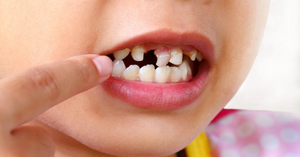Creating a healthy lifestyle starts at home, where habits are formed and nurtured. Families have the unique opportunity to model and reinforce healthy choices, helping children grow up with a foundation of wellness that benefits them for life. Simple, daily practices in nutrition, exercise, mental well-being, and positive family interactions are powerful ways to embed healthy habits.
The Role of Family in Building Healthy Habits
Children learn by example, and the home environment is their first classroom. When parents prioritize wellness—through healthy eating, staying active, and managing stress—they create a natural path for children to follow. By modeling these behaviors and involving everyone in the journey, families can create routines that make health a normal and enjoyable part of daily life.
Creating a Balanced Diet Together
• Plan and Cook Meals as a Family: Preparing meals together allows kids to learn about food choices and nutrition. Simple tasks like washing vegetables or stirring ingredients help children feel involved and make mealtime an educational experience.
• Stock Up on Nutritious Foods: Keeping a variety of fruits, vegetables, whole grains, and lean proteins in the house makes it easier for everyone to choose healthy snacks and meals.
• Encourage Mindful Eating: Practicing mindful eating—focusing on the taste, texture, and enjoyment of food—helps family members develop a healthy relationship with food, reducing overeating and promoting satisfaction.
Making Physical Activity a Fun Part of Family Life
• Find Activities Everyone Enjoys: Encourage each family member to discover physical activities they love, like biking, hiking, or dancing. Doing these together not only promotes fitness but also strengthens family bonds.
• Set Aside Time for Active Play: Regularly plan family activities that encourage movement, such as weekend nature walks or after-dinner strolls.
• Limit Screen Time and Encourage Movement: Reducing screen time leaves more room for active play. Encourage breaks to stretch, walk around, or play outside.
Prioritizing Mental and Emotional Wellness
• Create an Open and Supportive Environment: Encourage open discussions about feelings and stresses. When children feel heard and supported, they’re better equipped to handle emotions in a healthy way.
• Introduce Mindfulness Practices: Simple practices like deep breathing, journaling, or mindfulness activities help family members manage stress and cultivate resilience.
• Teach Gratitude and Positivity: Practicing gratitude as a family, such as sharing one positive moment from the day, can boost mental well-being and help everyone focus on the good in their lives.
Building a Healthy Routine That Sticks
• Set a Consistent Schedule: Regular mealtimes, bedtime routines, and activity times create structure, making healthy habits easier to maintain.
• Make Small, Sustainable Changes: Focus on gradual improvements rather than sudden changes. Start by incorporating one or two new habits, like drinking more water or adding a family walk each day.
• Celebrate Progress Together: Acknowledge and celebrate each other’s successes, whether it’s trying a new vegetable or completing a family workout. Positive reinforcement encourages everyone to keep going.
Conclusion
Healthy habits truly begin at home, where family members can support and motivate one another. By focusing on balanced nutrition, regular physical activity, mental wellness, and consistent routines, families can foster an environment that encourages lifelong health. When wellness is woven into the fabric of daily life, everyone benefits, building a foundation that supports physical and emotional well-being for years to come.








Be the first one to comment on this story.